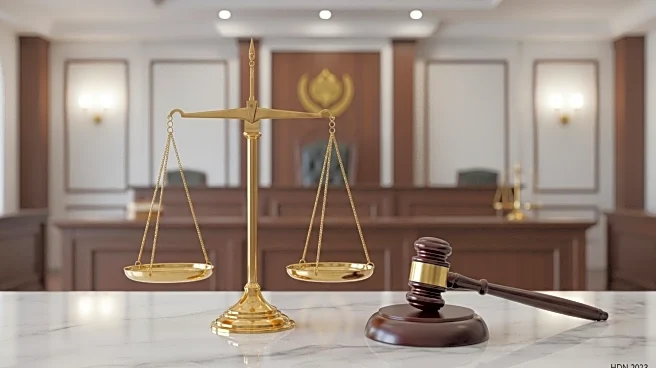What is the story about?
What's Happening?
A federal judge in Rhode Island has ruled that the National Endowment for the Arts (NEA) policy of reviewing grant applications for compliance with President Trump's executive order on 'gender ideology' is unconstitutional. The lawsuit, initiated by several arts organizations, challenged the NEA's policy that federal funds should not be used to promote gender ideology. The NEA had modified its policy to review grant applications on a case-by-case basis for artistic excellence and merit, including whether the project promotes gender ideology. This policy change followed an executive order signed by President Trump, which aimed to defend against gender ideology extremism. The lawsuit argued that these regulations violated First Amendment rights, potentially preventing organizations from seeking grants based on artistic merit. Judge William E. Smith ruled that the NEA's policy was a restriction on artists' speech and viewpoint-based, thus violating the First Amendment.
Why It's Important?
The ruling is significant as it underscores the protection of First Amendment rights against government-imposed restrictions on artistic expression. The decision highlights the ongoing tension between federal policies and individual rights, particularly in the arts sector. Organizations that support or produce work by transgender individuals stand to benefit from this ruling, as it ensures their eligibility for NEA grants based on artistic merit rather than compliance with ideological standards. The ruling serves as a reminder of the limits of governmental power in dictating cultural and artistic norms, reinforcing the principle that government funds cannot be used to enforce ideological conformity.
What's Next?
Following the ruling, the NEA may need to revise its grant application policies to align with the court's decision, ensuring that grants are awarded based on talent alone, without regard to the artists' viewpoints. Arts organizations and civil rights groups may continue to monitor and challenge any future policies that they perceive as infringing on constitutional rights. The decision could also influence other federal agencies in their approach to funding and policy-making, prompting a reevaluation of how government funds are allocated in relation to ideological content.
Beyond the Headlines
The ruling may have broader implications for the relationship between government and the arts, potentially influencing how cultural policies are shaped in the future. It raises questions about the role of government in defining and regulating cultural and artistic expression, and the balance between protecting individual rights and implementing public policy. The case also highlights the importance of judicial oversight in maintaining constitutional protections against government overreach.














